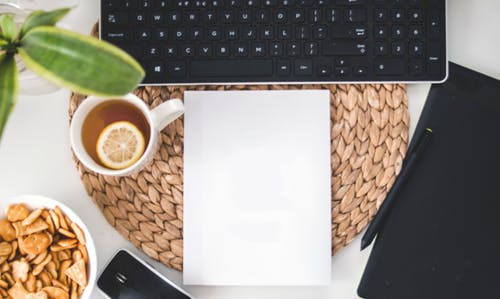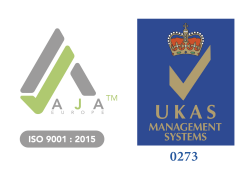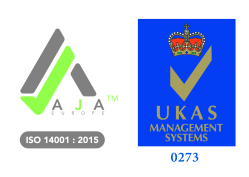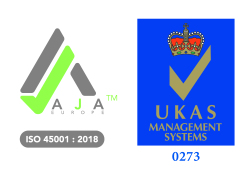The importance of good nutrition and hydration at work
The importance of good nutrition and hydration in the workplace
Healthy eating and drinking habits help improve our work productivity and reduce potential safety risks. We give you the lowdown on how to get the right nutrition and stay hydrated at work…
Eating healthily and staying hydrated during the working day can be tough with a busy schedule - when you have back to back meetings, or the nature of work / specialist work clothes make it difficult to access water regularly. However, the importance of good nutrition and hydration shouldn’t be underestimated. Apart from the contribution to overall health, healthy eating and drinking habits help us to perform better mentally and physically, improving our work productivity.
Ways to eat healthily no matter how busy you are at work
1. Always eat breakfast.
The morning rush to get out the door can make skipping breakfast all too easy. But breakfast is vital for your energy levels and to boost your mood. If you don’t have time to sit down for a bowl of cereal at least make sure you grab a healthy snack.

2. Plan your meals.
It’s Tuesday night and you’re on the way home from the office and realise you have nothing in for dinner. In this situation it’s tempting after a hard day’s work to pick up a ready meal (which tend to be heavily laden with fat / salt) or grab a takeaway. If you don’t have time to physically go grocery shopping, shop online arranging a delivery time at your convenience.

3. Take healthier choices to work.
Invest in some plastic tubs to prepare meals to take to the office (pasta, soups) which will be much tastier than a ready-made store-bought sandwich. Snacking doesn’t have to mean crisps or chocolate from the vending machine. Snack-sized bags of almonds are a healthier alternative. Or fresh fruit.

4. Stay hydrated.
Drinking enough water is vital for general good health. Keep bottled water in a refrigerator at work or use the in-office water cooler if you have one. The NHS advises 1.2 litres (six to eight glasses) of fluid each day to avoid dehydration. However, the European Food Safety Authority suggests that men should drink 2 litres (that’s roughly three and a half pints) and women 1.6 litres. While “fluids” can include milk fruit juices tea and coffee these also contain sugar and caffeine. Pure plain H2O is best for flushing out toxins and helping digestion. 
Hydration in the workplace
Employers are legally required to ensure workers have an adequate supply of safe drinking water under Regulation 22 of The Workplace (Health, Safety and Welfare) Regulations 1992. Employers need to meet certain requirements which include:
1. *Providing an adequate supply of clean drinking water for all employees.
2. *Making sure that the drinking water is easily accessible at suitable places and conspicuously marked by an appropriate sign where necessary.
3. *Providing a sufficient number of suitable cups or drinking vessels, unless the drinking water is in a jet from which persons can drink easily.
Water is vital for your body to function normally. Dehydration can be dangerous. A lack of fluids can lead to concentration lapses, increasing risks to safety, for example if you operate machinery or drive a vehicle.
Air conditioning units which are a common feature in offices, gyms, shops, hospitals and airports affect hydration levels as they drive up moisture evaporation from the skin and lungs, leading to increased water losses.
Anyone in warmer working conditions or wearing personal protective clothing (PPE), or whose job is more strenuous (eg construction, agriculture, gardening, armed forces professions), will need to up their water intake because of higher perspiration rates. The Natural Hydration Council cites that sweat rates have been reported to reach as much as 2 litres per hour for people in protective clothing or in very hot environments.
Did you know?
A survey carried out by the Natural Hydration Council of 300 UK General Practitioners found that 1 in 5 GP consultations were down to tiredness and fatigue and 1 in 10 of those were thought to be linked to dehydration.
TOP TIPS TO IMPROVE HYDRATION (from The Natural Hydration Council www.naturalhydrationcouncil.org.uk)
1. Start your day with a glass of water or have a drink of water during the commute to work.
2. Include a bottle of water in your work bag to ensure that you have access to water throughout the day. Some people find it useful to use a big bottle as a gauge, or to count the number of small bottles they are drinking, to track how much water they are consuming throughout the day.
3. If dehydration could affect your safety, or that of others, then don’t risk it. Consider ways to improve access to water for you and your colleagues to make sure you keep well hydrated.
4. Urine colour is a useful indicator to monitor hydration status. This should be pale straw colour. Dark yellow, concentrated urine or a low urine output is a sign that you need to drink more water.
5. If you are feeling tired, have a headache or are experiencing any other signs of dehydration, try having a glass of water, as a first step.







